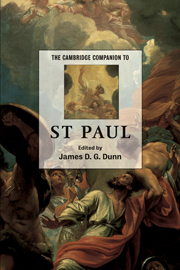14 - Paul’s ecclesiology
from Part III - Paul’s theology
Published online by Cambridge University Press: 28 May 2006
Summary
Addressing Paul's understanding of the church (ekklēsia) means raising other difficult questions that a brief essay cannot adequately answer. The most critical question concerns which of the letters ascribed to Paul should be considered. Ephesians and 1 Timothy, for example, provide fuller information on aspects of the church than do some undisputed letters. But they are commonly regarded as pseudonymous. Should they be excluded altogether, read as a faithful continuation of themes in the authentic letters, or adjudged betrayals of the authentic Paul's spirit? In order to maintain conversation with the dominant scholarly position, this essay will discuss the evidence of the undisputed letters before that in Colossians, Ephesians, and the Pastoral Letters, even though there are strong reasons for accepting all thirteen letters attributed to Paul as authored by him through a complex process of composition. The present analysis does, however, emphasize thematic links between the disputed and undisputed letters, in order to respect the genuine lines of continuity among them and the marked diversity within even the collection of undisputed letters.
Another procedural question concerns consistency and variation among the expressions of Paul’s thought. Which images and understandings are of fundamental character, and which are only brought to the surface by the peculiar circumstances that Paul faces in a specific community?
- Type
- Chapter
- Information
- The Cambridge Companion to St Paul , pp. 199 - 211Publisher: Cambridge University PressPrint publication year: 2003



